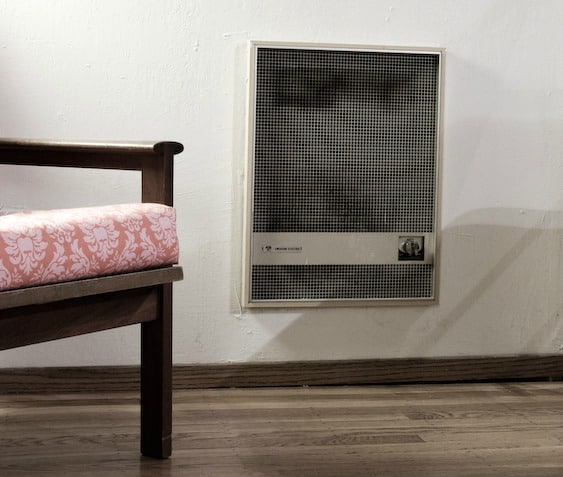
According to the National Fire Protection Association, heating equipment was responsible for more than 50,000 structure fires in 2011. Roughly half of those fires were due to storage of personal items like curtains and furniture too close to a heater, and roughly half were caused by failure to clean heating equipment. With the heating season upon us, it’s a great time to talk about simple maintenance that can keep you and your house safer.
Personal Experience
I was inspecting a small condominium unit one day and turned up the thermostat in one of the bedrooms to test the electric wall heater. I was discussing, ironically, smoke detectors with my client when I noticed acrid white smoke billowing from the metal cover of the electric heater I had just turned on. In a flash, I turned off the thermostat and the circuit breaker and sprinted to my car for my fire extinguisher. Luckily, the smoldering fire dissipated and I didn’t have to douse the heater with my fire extinguisher, but this story points to the importance of maintaining the often neglected electric heater.
Renovating your home?
Find out what your home's worth, edit facts, and see the impact of home projects.
Electric Heaters
Renovating your home?
Electric heaters come in two basic types – those that you plug in (space heaters) and the permanent heaters that come installed in your house, like a baseboard heater or a wall-mounted heater. Let’s focus on the heaters that are built into your house.
Installed electric heaters are generally either baseboard heaters, wall-mounted forced air heaters or some type of ceramic/radiant heater. The most common electric baseboard heaters and wall-mounted heaters tend to run at the hottest temperatures, and are therefore less safe than the ceramic and radiant heaters that run at cooler temperatures. These are also generally the least expensive electric heaters to buy. The way these heaters operate is very similar to a toaster.
Ceramic heaters and some baseboard heaters, by contrast, run a liquid through a radiator or heat up a radiant ceramic surface; these heaters are safer than the electric element type, as they don’t get as hot.
Some electric heaters have been recalled: most notably some Cadet models from 1978-2000. To check your heater, find the brand, model number and serial number and do an internet search.
Looking to save money on your mortgage?
Critical Care and Maintenance
Every electric heater requires some amount of care and maintenance to safely operate. While every manufacturer may differ slightly, here are some good basic rules of thumb:
- Clean heaters every three to six months. You should follow the manufacturers’ directions, but one of the best ways is to turn off the power to the heater and use compressed air to blow dust off of it.
- Do not store stuff in front of the heater. Electric heaters can run very hot. Keep curtains, furniture and personal items at least three feet away from the heaters.
- Do not let electrical cords hang over or in front of heaters. An older construction practice was to allow electric receptacles above baseboard heaters. This is no longer permitted and is unsafe.
In the case of the heater that nearly caught fire, it turned out that a cat liked to sleep in front of the heater. When I pulled the cover off to look inside I found the heater was literally full of cat hair.
I hope this blog helps you understand a bit more about electric heater safety. Be safe and keep your heaters clean!
About Dylan Chalk
Dylan Chalk is the owner of Seattle-based Orca Inspection Services LLC – www.orcainspect.com. He is also the founder of ScribeWare software offering innovative and simple report writing solutions. Email him at dylan@orcainspect.com or check out his blog.
Note: This is a guest post; the views and opinions expressed are those of the author and do not necessarily reflect the opinion or position of Redfin.


























 United States
United States Canada
Canada